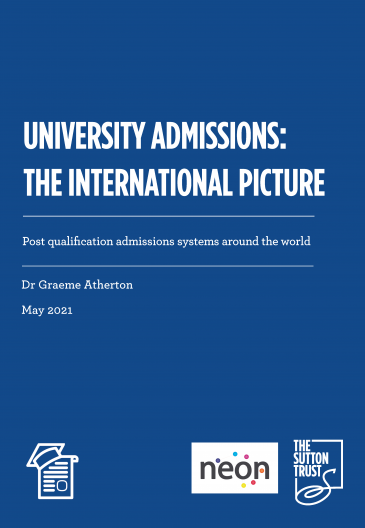Report Overview
England has a ‘pre-qualification’ system of higher education admissions, where applications and offers are made to young people before exam results are received. While in most cases offers are conditional on achieving a grade target in A Level exams, recent years have seen an exponential growth in ‘unconditional offers’, where the offer of a place is made long before exams are taken, and is not conditional on results.
The government has recently announced a review of the HE admissions system in England and has opened a consultation on the future shape of this system. Should the system stay as it is, move to a Post Qualifications Offers (PQO) model, or move to a Post Qualifications Applications (PQA) model?
This briefing focuses on the global picture where HE admissions systems and specifically HE admissions timetables are concerned, and provides an overview.
You can find our response to the government’s consultation here.
